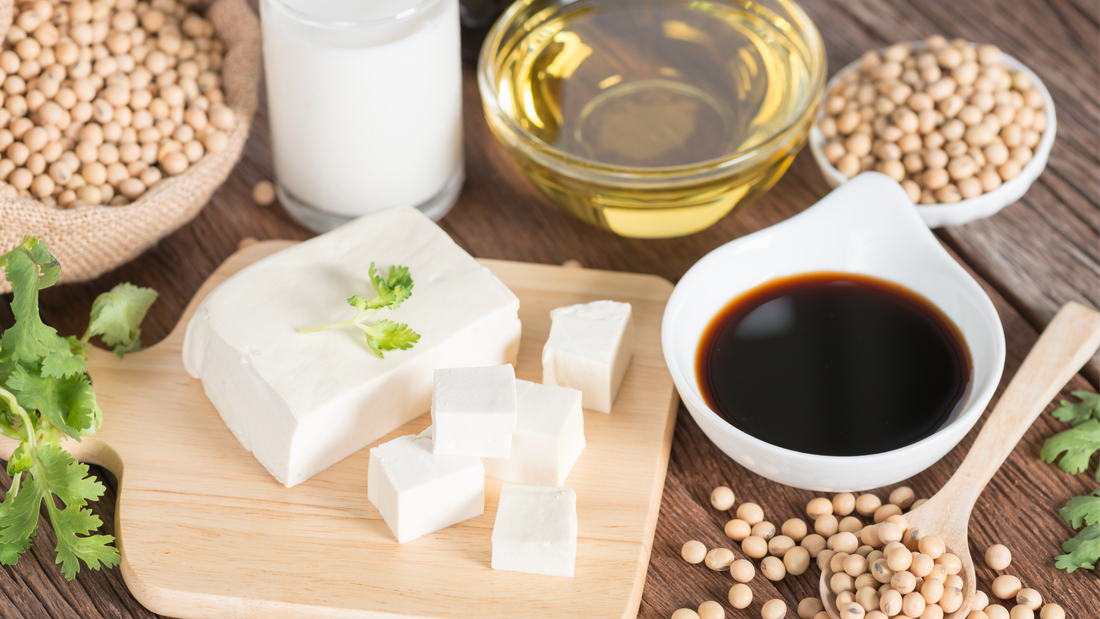
Is Soy Bad for You? Can it cause cancer, thyroid issues and infertility?
Naturally YoursShare

I am sure you must be the one who likes to indulge in those yummy soy chilli starters!
Or even have the habit to fortify your wheat flour with Soy flour. Soy has become one of the most widely adopted food into some vegan as well as vegetarian diets.
Soy, by itself, is considered as a complete protein, meaning they contain all the 9 essential amino acids that the body cannot produce on its own. Apart from protein, it also has ample amounts of calcium, fibre, vitamin A, C and iron too!!
Packed in this small yellow bean are estrogen-like molecules, known as isoflavones which may help fight heart disease, osteoporosis and other illness too.
But still some people shy away from Soya out of the concern about hormones. There is a common belief among some that Soy can cause a plethora of health issues like fatigue, digestive distress, weight gain, hormonal imbalances and cancer too!!
So, the debate is, Is Soy actually bad for you??
Soy and Cancer

The relationship between soy food intake and cancer has been researched and studied for over 25 years.
Eating moderate amounts of natural soy foods (1-2 servings a day) do not increase the risk of cancer. As, Isoflavones if present in moderate amounts can “turn on” genes that slow the growth and multiplication of cancer cells and further causes apoptosis (self-destruction).
They also help in the body’s antioxidant defense mechanism thus contributing towards protecting against cancer.
According to a report by Harvard School of Public Health, soy has either a beneficial or neutral effect on various health conditions. It is a nutrient-dense source of protein that can safely be consumed several times a week, and is likely to provide health benefits, especially when eaten as an alternative to red and processed meat.
According to the review, Soy and Health Update: Evaluation of the Clinical and Epidemiologic Literature, published in NCBI, the concerns regarding the negative effects of isoflavones in the body are based primarily on animal studies, whereas the human research supports the safety and benefits of soy foods. In support of safety is the recent conclusion of the European Food Safety Authority that isoflavones do not adversely affect the breast, thyroid or uterus of postmenopausal women.
According to American Cancer society, soy foods are completely healthy and safe if consumed in moderation. There is growing evidence that eating traditional soy foods such as tofu may lower the risk of cancers of the breast, prostate, or endometrium (lining of the uterus), and there is some evidence it may lower the risk of certain other cancers.
The Shanghai Women’s Health Study which followed 73,223 Chinese women for more than 7 years has been the largest and most detailed study of soy and breast cancer risk in a population with high soy consumption.
This large, population-based, prospective cohort study provides strong evidence of a protective effect of soy food intake against premenopausal breast cancer.
Women who consumed a high amount of soy foods consistently during adolescence and adulthood had a substantially reduced risk of breast cancer. No significant association with soy food consumption was found for postmenopausal breast cancer.
Soya and your Thyroid

Two areas of confusion are always seen in people
- Can Soya increase levels of TSH?
- Can Soy increase hypothyroidism?
Eating large amounts of Soy foods may not be good for some women’s thyroid functioning. According to research by University in California, People with Hypothyroidism should avoid indulging on soy as it increases the goitrogen levels and other phytochemicals which reduces thyroid secretion of hormones.
Also, if you are replacing your daily glass of milk with soy milk, then you may be at a risk, that your body is not getting enough iodine which affects the production of thyroxine.
The bottom line? People who are eating a normal healthy diet with soy should not worry about thyroid functioning. But, if you have hypothyroidism or underactive thyroid you need to keep the soy away as it interferes with the absorption of thyroid medication.
People with mild hypothyroidism can consume soy containing foods at least 3 hours before or 1 hour after taking medications.
Soy and infertility

There is a lingering concern that consuming soy can affect the fertility in both men and women.
Animal Studies suggest that eating large amounts of soy may reduce fertility in women, trigger early puberty and disrupting development of fetuses and children.
But to date, only one study has looked at the long-term effects of soy formula on reproductive development in people. It found that high levels of soy protein sometimes increase the length of your menstrual cycle and decreases FSH (Follicle-stimulating hormone) levels and LH (luteinizing hormone) which are involved in with ovulation in women. More human studies are needed to determine if there really is a link.
Don’t worry, eating tofu once in a while, won’t make you infertile. But consuming more than 60gms of soy protein every day, requires a second thought.
Women trying to conceive should eat soy products in moderation due to the presence of plant derived estrogen compounds called as isoflavones.
Natural soy is the healthier choice

The science about soy isn’t absolute. It’s often contradictory!! It’s very clear that more research is needed to determine all the good and bad effects of including soy in diet.
While going for grocery shopping, always prefer the natural options instead of highly processed ones. Plant based soy include soy milk and tofu. Your plate should include soy with high fiber fruits and vegetables and low in saturated fats.
However, the science on soy is still evolving. Soya has tremendous other benefits too!! It has a vital role in reducing cholesterol and improving kidney functioning and heart health.
But, at the end of the day, eating too much of anything, even if it is nutritionally good and healthy for you, may have negative effects.
So, there is no reason to steer clear of soy foods and keep yourself from enjoying them as a part of a healthy diet.
ABOUT THE AUTHOR

Sneha Jain, Dietician
Sneha is a Post graduate with specialization in Nutrition and Dietetics. She is a university topper and holds 5+ years of experience in Apollo hospitals, VLCC, slimsutra and first cry fit-kids . She has successfully counselled clients all over India for weight loss, weight gain, diabetes, hypertension, PCOD, hypothyroid, Pregnancy and lactation and growth charts for children. She has her own diet consultation e-clinic (diet_diariez)
She believes in customized diets and eating local and seasonal foods. Her counselling not only involves diet planning, but also lifestyle modification and stress relief strategies.
